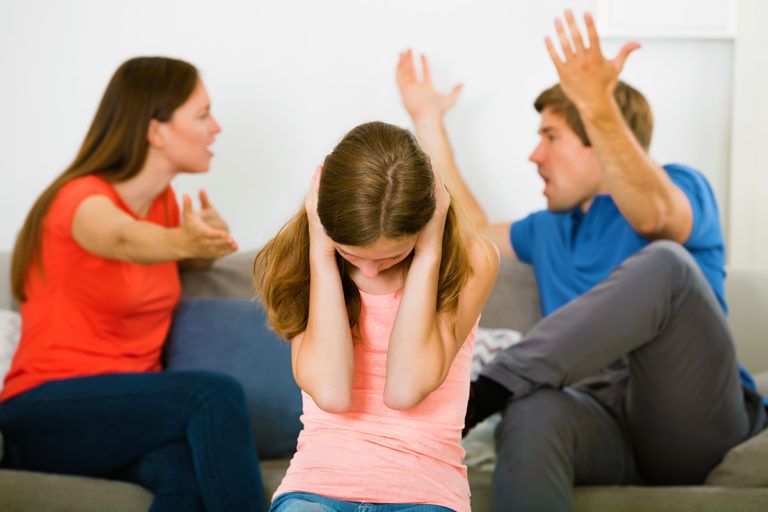It’s often said that “little pitchers have big ears.” What that means is that kids are often listening even when you don’t think they are.
That is why conventional wisdom is that adult topics such as divorce not be discussed with children. But that is not always the best course of action. Pauline Tesler, a leading family lawyer, says that, “If children are not told what is really going on, they fill in the blanks themselves, and that is cruel.” Children are very intuitive—if they sense something bad is going on in their parents’ relationship, they tend to blame themselves for their parents’ disagreements, separation and divorce. Children need to know that they are not the reason that mom and dad are no longer able to live with each other.
Before You Discuss Divorce with Your Kids
Remember, the discussion about their parents getting a divorce is something that most children remember for the rest of their lives, almost like people remember where they were when the Kennedy assassination or 9/11 took place. Preferably, you should both sit down with the kids at the same time. Modeling for the children that you are still a united front when it comes to their well-being and your love for them speaks volumes and gives them the emotional support that may make all the difference in how well they do with the changes going on in their family’s life.
As a coparents you should work out a plan for how you will tell the kids before you start a discussion.
You must take into consideration your child’s age and state of mind. Your goal is to have the children understand why you are getting divorced, that you still love them and will be there for them and that it’s not their fault.
If you are not sure how to approach your kids (and most people do not know how to handle this), or you do not get along well enough to feel that you can do this together, please consider consulting a trained counselor for help in how to handle this discussion with your children (please see more on that below).
Impact on the Children
If you do not approach this sensitive topic properly, the news of your divorce could impact the children negatively. The children could be devastated, and no matter how much you tell them it’s not their fault, they may claim fault and act out, get in trouble at school and home, have emotional problems and even get in physical altercations with siblings and friends. Keep in mind that children, depending on their physical and emotional age, may also feel betrayed or hurt, and could act out for those reasons. They may not know how to handle these feelings, and the only way they are able to deal with those feelings is to act out.
You also want to avoid intentionally or even unintentionally encouraging the children to pick sides between their parents. This causes emotional damage to children of all ages. Once a child chooses sides, it’s easy for that child to become alienated from the other parent. This is unhealthy for the children and adults and could prolong the divorce if one parent then feels the need to seek court intervention because they feel the other parent is alienating the children from them.
Getting a Professional Involved
Each family’s issues are unique. One 5-year-old may be able to handle a conversation about divorce while the next one may not even begin to process the information beyond “Dad is leaving,” or “Mom is leaving.” A professional evaluates a child’s needs and takes several things into consideration, including a child’s age. The professional then comes up with a method of discussing the divorce with the children. In some cases, the professional may be able to help the parents tell the children, and in others, the professional may actually even be brought in to discuss the matter with the children and help them through the major change in their lives.
If parents and professionals alike are not careful in how they present and explain the divorce, it could impact a child, even a teen, for the rest of his or her life.
Stories abound about people who are in and out of jail as adults because of how that child was never able to come to terms with a divorce.
Try to put your feelings about each other aside and remember how high the stakes are with regard telling your children about the divorce. Most people say they would throw themselves in front of an oncoming train to protect their children—seeking assistance from a trained professional to best handle this discussion with your children is a statement that you mean it when you say you would do anything for your children. When you had your children you intended to always do the best for them, no matter what—this is the time to prove that you mean that.


